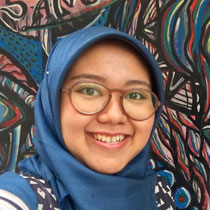Every landscape is unique – and sometimes we can cross-pollinate learnings between locations, too
The integrated landscape approach is currently gaining traction as a means for improving governance and achieving equitable use of landscapes. It takes into account the wide range of resources that are present within each landscape, including natural resources such as water and food, as well as farms and people.
The COLANDS initiative – ‘Collaborating to Operationalise Landscape Approaches for Nature, Development and Sustainability’ – is working to address gaps between scientific theory and the implementation of landscape approaches.
The initiative collaborates with the Center for International Forestry Research and World Agroforestry (CIFOR-ICRAF), the Global Landscapes Forum (GLF), and other partners to conduct innovative research related to landscapes. COLANDS is also involved in the essential work of engaging multiple stakeholders, through fieldwork in the Western Wildlife Corridor in northern Ghana; the Kalomo District in southern Zambia; and in Indonesia’s West Kalimantan.
This episode of Let’s Talk Trees features two COLANDS colleagues, Alida O’Connor and Eric Bayala, who will share some of the lessons learned from their work in northern Ghana, southern Zambia, and Burkina Faso – including similarities and differences across landscapes, challenges in applying an integrated landscape approach in these areas, and implications for governance and policy.
We want you to share Forests News content, which is licensed under Creative Commons Attribution-NonCommercial-ShareAlike 4.0 International (CC BY-NC-SA 4.0). This means you are free to redistribute our material for non-commercial purposes. All we ask is that you give Forests News appropriate credit and link to the original Forests News content, indicate if changes were made, and distribute your contributions under the same Creative Commons license. You must notify Forests News if you repost, reprint or reuse our materials by contacting forestsnews@cifor-icraf.org.








